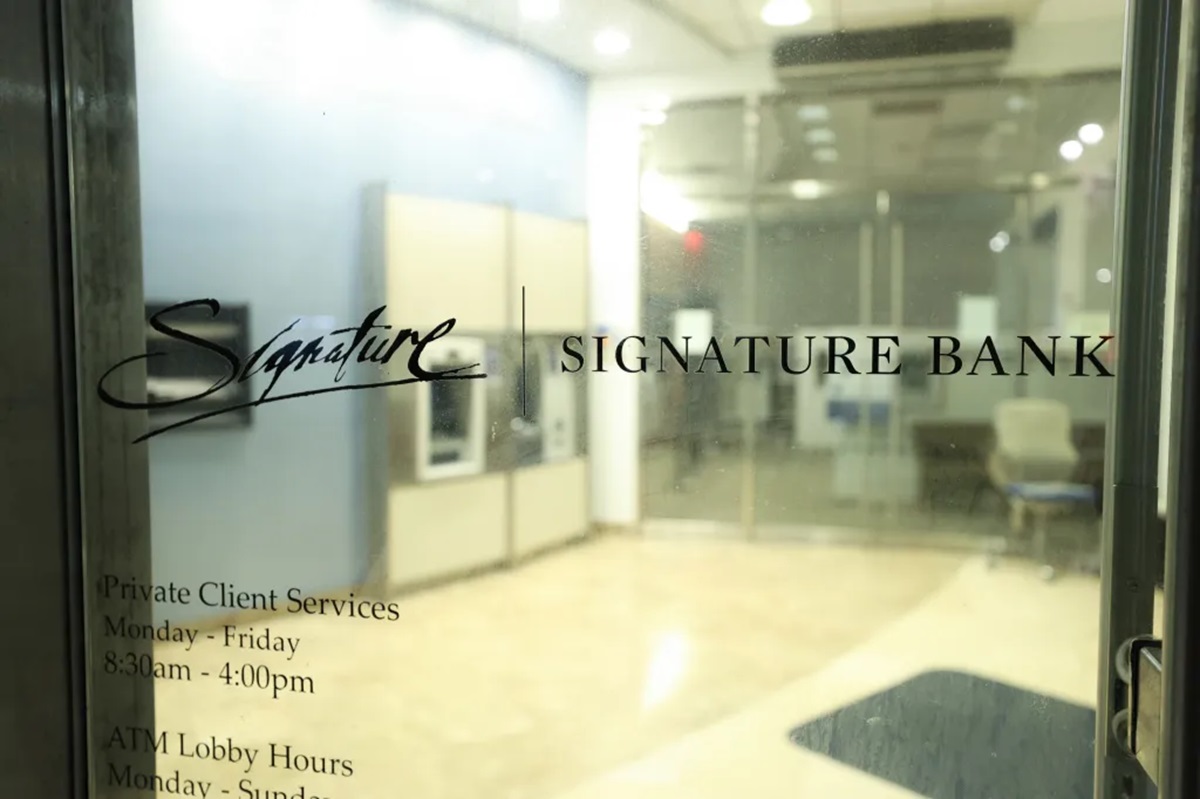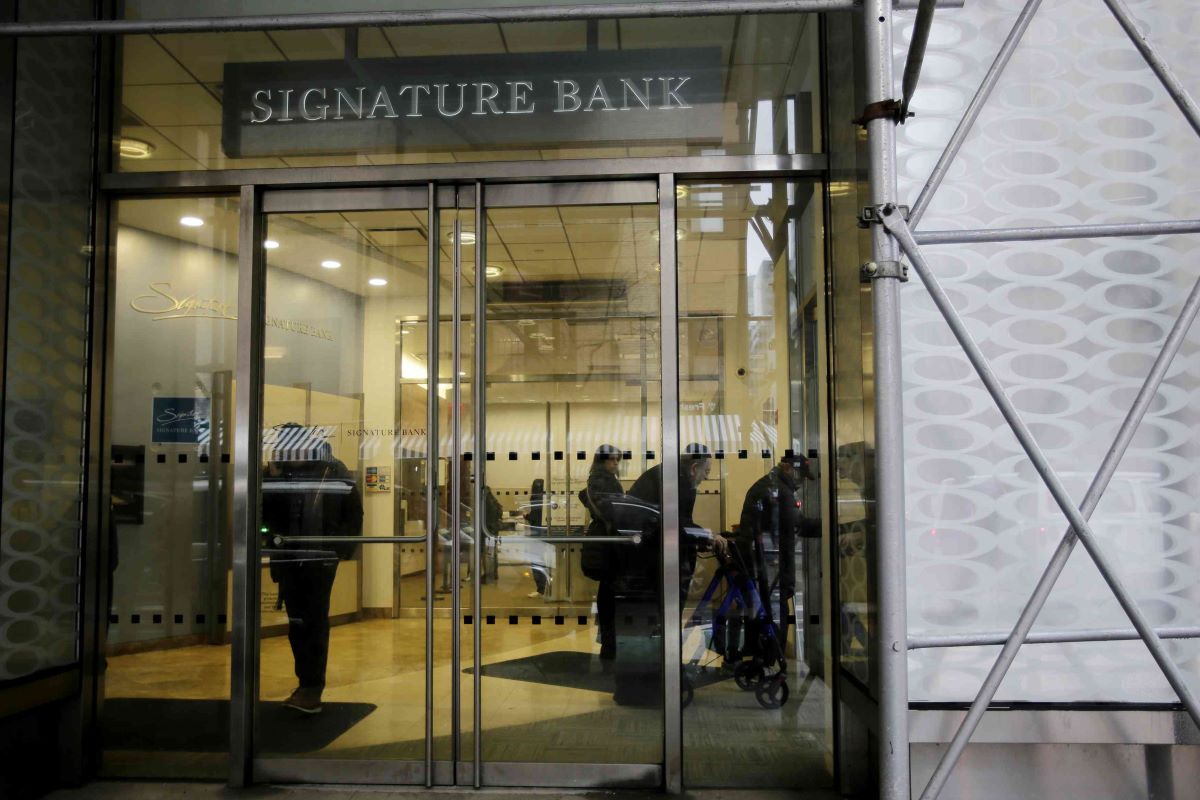On Sunday, President Joe Biden announced that, at his direction, U.S. Treasury Secretary Janet Yellen and his chief economic adviser Lael Brainard collaborated with financial regulators to ensure that households and businesses impacted by the failures of Silicon Valley Bank (SVB) and Signature Bank could access their deposits.
Biden also vowed to hold accountable those responsible for the banks’ failures.
“I am pleased that they reached a swift resolution that safeguards American workers and small businesses, while also protecting our financial system. The solution ensures that taxpayer funds are not at risk,” Biden stated.
He added, “I am firmly committed to holding those responsible for this situation fully accountable and to enhancing oversight and regulation of larger banks to prevent a recurrence.”
On Sunday evening, Treasury officials briefed a bipartisan group of lawmakers from both houses of Congress. Biden plans to address the public on Monday regarding efforts to maintain a “resilient banking system.”
The administration took significant emergency measures on Sunday, including extending a federal backstop to cover all deposits at Silicon Valley Bank to ensure that these funds would be available on Monday, according to a senior Treasury official.
This emergency action was accompanied by the announcement of a new Federal Reserve lending facility and resulted from intense behind-the-scenes efforts by the U.S. government to address the urgent concerns of small businesses and individuals potentially unable to access their funds.
The broader fear was that failing to provide all depositors with their funds on Monday might trigger a wider contagion across the banking sector. When the FDIC took control of the bank on Friday, it planned to pay customers their insured deposits on Monday, which only covers up to $250,000.
With a significant amount of money and influence at stake, the focus was primarily on addressing the situation for those with uninsured deposits, many of whom were smaller companies facing the possibility of mass layoffs if they could not access their funds to pay employees.
However, a Treasury official noted that “things moved very quickly” over the weekend, leading to the decision to “act early” and invoke the systemic risk exception—a designation that allows for immediate advances to depositors with amounts exceeding the $250,000 FDIC insurance limit.
The official indicated that it would have been “quite challenging” for a potential buyer to review SVB’s financials, agree to purchase the assets, and prepare to open on Monday.
Consequently, with federal regulators closely monitoring the situation before the financial markets opened in Asia, the decision was made to proceed with government actions.
On Sunday, Yellen instructed the FDIC to guarantee that SVB customers would have access to all their funds starting Monday, aiming to restore public confidence in the U.S. banking system.
Yellen, Federal Reserve Chair Jerome Powell, and FDIC Chairman Martin J. Gruenberg released a joint statement regarding these measures.
Earlier on Sunday, Yellen emphasized that the government would not bail out the bank, a stance supported by several lawmakers.
“Let me be clear that during the financial crisis, there were investors and owners of systemic large banks that were bailed out, and we’re certainly not looking to do that now,” Yellen told CBS News. “The reforms in place mean that we’re not going to repeat that.”
Yellen reported that she had been in contact with depositors throughout the weekend, many of whom are “small businesses” employing thousands of people.

She mentioned that she had been working with banking regulators to develop appropriate policies for addressing the crisis, though she declined to provide further specifics.
SVB collapsed on Friday morning after a dramatic 48-hour period marked by a bank run and a capital crisis, resulting in the second-largest failure of a financial institution in U.S. history.
The crisis was triggered by high interest rates, leading to a bank run on Thursday in which depositors withdrew $42 billion from SVB.
SVB had provided financing for nearly half of U.S. venture-backed technology and healthcare companies. By the end of 2022, the bank reported having $151.5 billion in uninsured deposits, $137.6 billion of which was held by U.S. depositors.
While relatively obscure outside Silicon Valley, SVB was among the top 20 American commercial banks, with $209 billion in total assets at the end of the previous year, according to the FDIC. It is the largest lender to fail since Washington Mutual collapsed in 2008.
Despite the initial panic on Wall Street over SVB’s failure, which caused its share prices to plummet, analysts suggested that the bank’s collapse was unlikely to trigger a domino effect similar to the 2008 financial crisis.
Shalanda Young, director of the White House Office of Management and Budget, emphasized in an interview that the U.S. banking system is now “more resilient” than it was before the financial crisis, largely due to reforms implemented since then.
On Sunday evening, Democratic and Republican leaders, along with many rank-and-file lawmakers, participated in a call with Treasury officials.
House Speaker Kevin McCarthy and Senate Majority Leader Chuck Schumer expressed concerns about potential systemic failures in the economy.
GOP Senator Mitt Romney of Utah acknowledged the need to avoid panic when markets reopen on Monday but expressed concern about the potential inadequacy of the federal regulators’ actions to prevent further bank runs.
South Carolina Senator Tim Scott, the ranking Republican on the Senate banking committee and a potential GOP presidential candidate, cautioned against “creating a culture of government intervention.”
He warned that such a culture could lead to future reliance on government assistance after excessive risk-taking and emphasized the need for accountability from both banks and regulators.
Prior to the Biden administration’s extraordinary announcement on Sunday evening, the collapse had spurred a debate in Washington about the merits of a bailout.
California lawmakers agreed that the government should seek a buyer for the bank rather than provide a bailout, as reported by sources familiar with the Treasury’s briefing with them.
Democratic Representative Adam Schiff of California stressed the importance of prioritizing affected workers and their paychecks.
Republican Representative Nancy Mace of South Carolina stated that she did not support a bailout at this time but acknowledged that it was still early to fully assess the situation.
Democratic Representative Ro Khanna, whose district includes much of Silicon Valley, emphasized the need for the Treasury Department to ensure that all depositors at SVB have access to their funds. He expressed no sympathy for SVB executives or shareholders but stressed that depositors should be protected.
Senate Banking Committee member Kevin Cramer expressed hope that the SVB collapse would remain a localized issue.
He noted the emotional nature of the current market environment and the role of social media in exacerbating market emotions, while hoping that the weekend would bring calm and strategic responses.







Leave a Reply